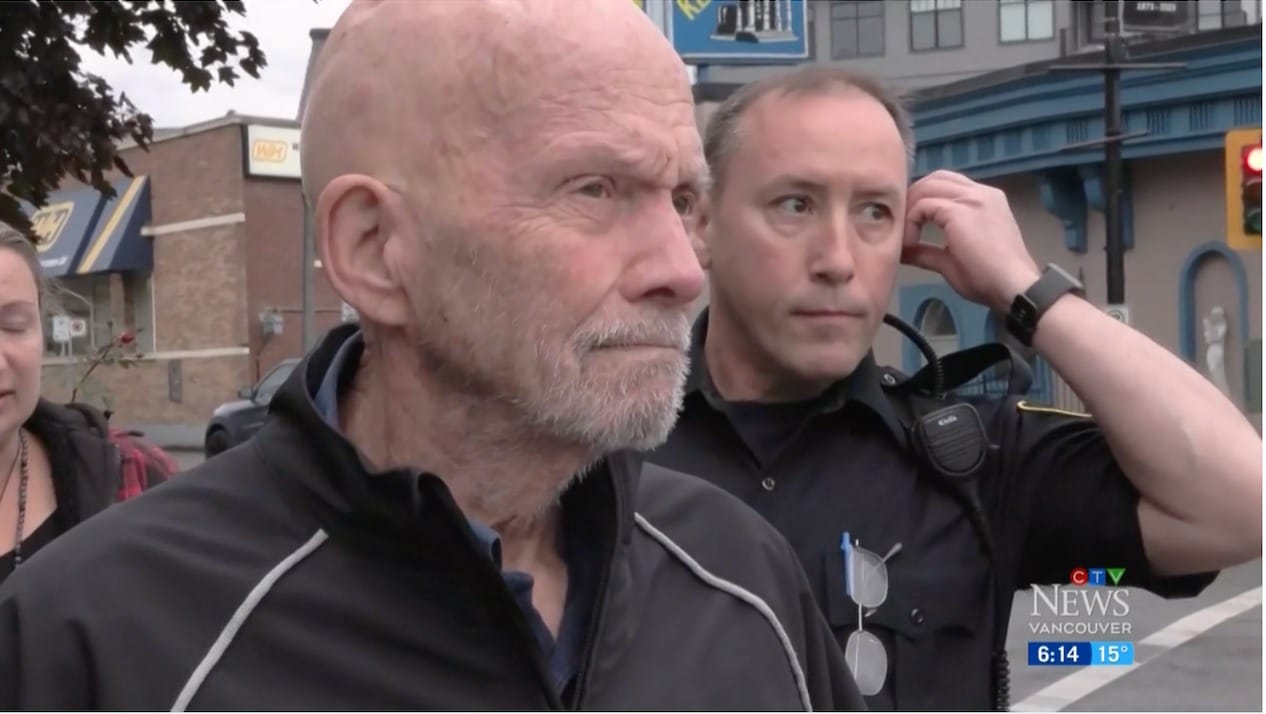Justice delayed: Double-murder trial postponed as accused’s high-profile lawyer too busy defending Surrey Six killer & others
Trial pushed to May 2026 where Robert Amede Freeman to plead insanity in killing of John Kavaloff & Valerie Smith in Chilliwack River Valley in 2023
Travis Finnigan was already exasperated with delays in the criminal justice system eight months ago, the 20th time he had attended court for the case of Robert Amede Freeman who shot and killed his parents.
"This broken system has left our family waiting for answers, justice, and closure while enduring repeated adjournments and inefficiencies,” he said in January 2025.
On Wednesday (Sept. 3, 2025), it was Finnigan's 30th time in B.C. Supreme Court in Chilliwack for the second-degree murder case. He got even more exasperating news: The 20-day jury trial scheduled to start in November 2025 is now delayed six months to May 2026.
Freeman’s defence team are not denying the essential facts of the case, that on Sept. 13, 2023, the 83-year-old Freeman shot his neighbours John Kavaloff and Valerie Smith in the Baker Trails Trailer Park in the Chilliwack River Valley.
The murders were apparently over a dog that bothered Freeman.
What high-profile lawyer Simon Buck will argue is that Freeman should be found to be not criminally responsible due to mental defect (NCR).

Crown counsel's issues regarding preparation for the NCR argument, in addition to Buck’s busy schedule, led to the latter applying to have the trial dates moved from November 2025 to May 2026. Justice Andrea Ormiston expressed her displeasure at both Crown and defence for further delaying the proceedings, something exceedingly unfair to the victims’ family and to Freeman himself.
“To the extent there is someone to blame, it is entirely the fault of counsel,” Justice Ormiston said in reluctantly agreeing to strike the court days in November and move the trial to start May 4, 2026.
An assistant lawyer to Buck told the court via video on Wednesday that their team had a murder trial to conduct in April 2026, so May was the earliest they were available. This was news to Justice Ormiston who had not been told this by Buck at the hearing last week where he asked for the postponement. The justice gave the assistant 15 minutes to get Buck himself to dial in and explain the situation, which he did. Buck is counsel for Cody Haevischer who, as of today, is on day 118 of a scheduled 146-day hearing asking to overturn his first-degree murder conviction in the 2009 Surrey Six slaughter due to alleged investigator misconduct.
Buck also confirmed there is another murder trial he is involved with in April 2026.
Crown counsel Susan Gill said they wouldn’t be available to continue until April anyway. Another issue is that Crown had the psychological report from defence back in February, but are taking a long time to get their own psychological report written, a report that “goes to the heart of the triable issue,” according to Ormiston.
“Crown is unable to finish the report,” she said. “I’m not saying the Crown did not act with diligence, but this process has been extremely slow [leaving the case] inexplicably behind schedule.”
The NCR twist also meant the length of time set aside in November and December for trial would likely not have been long enough anyway.
Because the delay is essentially caused by Freeman’s counsel, defence waived the delay meaning the six extra months prior to trial do not count towards the Jordan timeline. Jordan is the precedent-setting decision giving concrete numbers to the vagary found in section 11(b) of the Charter, which affords an accused a right to trial in a “reasonable time.” That reasonable time set by the Jordan decision is 19 months in provincial court, 30 months in Supreme court from the time charges are laid to resolution in a case.
And while section 11(b) is often raised by defence counsel in cases that are arguably dragging on too long, Justice Ormiston pointed to a 1990 Supreme Court of Canada decision that concludes 11(b) is also about the community. Firstly, there is a collective interest in seeing offenders brought to trial, and those on trial should be treated fairly and justly. Trials conducted as quickly as possible help with both of those.
Then there is the fact that if an accused is on bail and is subsequently found guilty, it’s best that the time out of custody is minimized so members of the community don’t have “an unpunished wrongdoer in their midst for an extended period of time,” according to the the SCC decision.
Despite this reality, and the disappointing circumstances for the victims’ family, Justice Ormiston had no choice but to agree to the postponement caused by the lawyers.
As for Finnigan, he was frustrated eight months ago with how long the case was dragging on and even more so now.
"The delays have caused immense emotional suffering, prolonged grief, and unjustly cost taxpayers significant resources,” he said back in January. “This is not just about our family – it’s about every family in Canada who deserves a fair and timely resolution to their case."
-30-
Want to support independent journalism?
Consider becoming a paid subscriber or make a one-time donation so I can continue this work.
Paul J. Henderson
pauljhenderson@gmail.com
facebook.com/PaulJHendersonJournalist
instagram.com/wordsarehard_pjh
x.com/PeeJayAitch
wordsarehard-pjh.bsky.social
